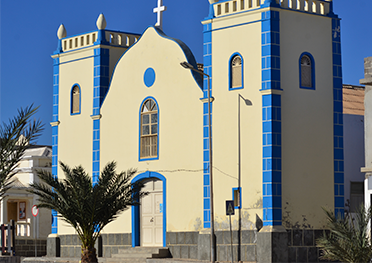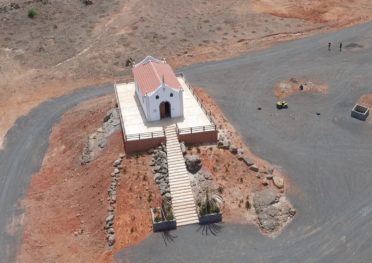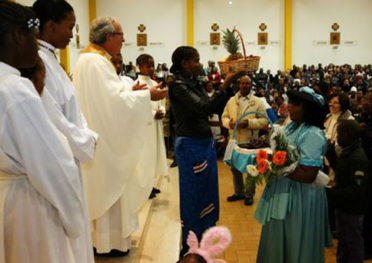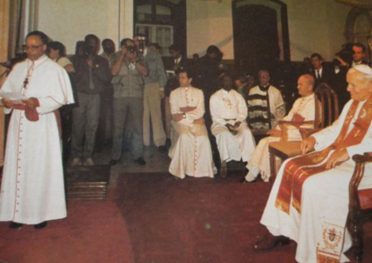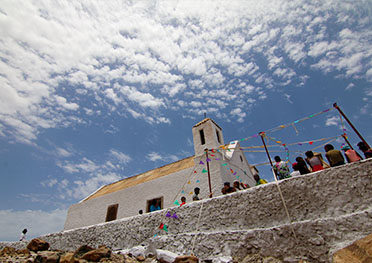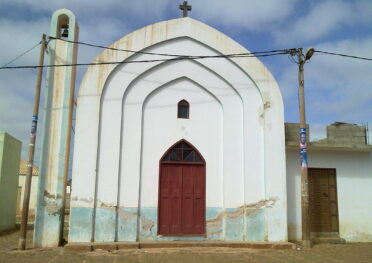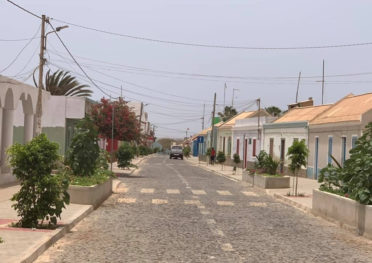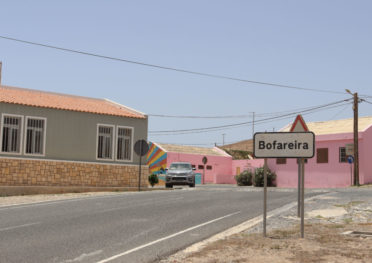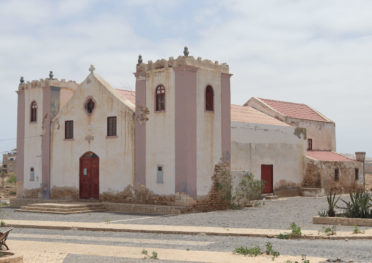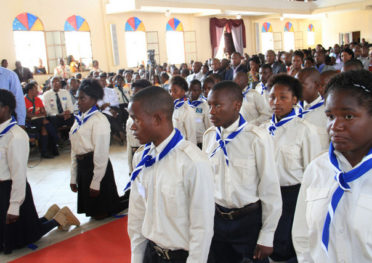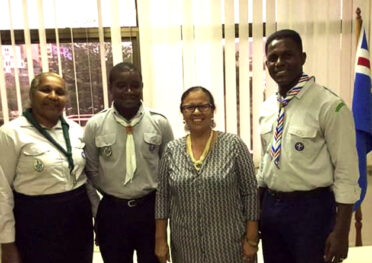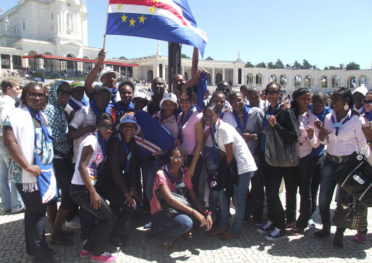The Catholic Church (the term “catholic” derived from the Greek word: καθολικός (katholikos) meaning “universal”, “general” or “referring to the whole”), also called the Roman Catholic Church and the Roman Apostolic Catholic Church, is a church Christian of approximately two thousand years of existence, placed under papal authority of the Bishop of Rome and successor of the apostle Peter. It proposes a spiritual life and a rule of life for its faithful inspired by the Gospel and defined, governed by the Code of Canon Law, it is composed, in addition to its very well-known ascending hierarchy, which runs from the deacon to the Pope. Mother of the church. To this end, the Catholic Church administers the sacraments and preaches the Gospel of Jesus Christ. He also works in social programs and institutions around the world, including schools, universities, hospitals and shelters, as well as managing other charities, which help families, the poor, the elderly and the sick.
Catholic Church in Cape Verde
After Christ’s death, his disciples came to be called Christians and, gathered in small communities, tried to keep the memory of his teachings alive, while still participating in the Jewish religious tradition. The Christian religion, formed by the Christian philosophy, constituted by teachings (love, compassion, fraternity …) coming from the ideas of Jesus Christ, founder and considered the greatest apostle of Christianity, emerged and became known in the ancient world (Antiquity). the Council of Trent, held between 1545 and 1563, the Christian church under papal authority came to be called Roman Catholic Apostolic, in opposition to the Protestant churches constituted from the Reformation. He defines himself as one, holy, catholic and apostolic and considers his chief as the legitimate heir to the chair of the apostle Peter, sacred pope, according to the Gospel, by Christ himself. Currently, the seat of the Catholic Church is in the Vatican State (north of the city of Rome), created in 1929 by the Lateran Treaty, especially to host and house the high clergy of the Church – among them, the Pope.
In Cape Verde the Catholic Church is part of the universal church, the Catholic Church is present in the country with two dioceses:
- – Diocese of Santiago de Cabo Verde, which comprises the islands of Maio, Santiago, Fogo and Brava;
- – Diocese of Mindelo, which includes the islands of Santo Antão, São Vicente São Nicolau, Sal and Boavista.
These dioceses are not suffragan of any archdiocese and are immediately subject to holy faith. He started to lead the diocese of Praia Dom Arlindo Furtado. Currently, most of the priests in Cape Verde are nationals, from the São José Seminary.
Religious Activities
In Sal Rei, activities in honor of the Municipality Festival and its patron saint, Nha Santa Isabel begins in July, with a great show of Social, Cultural and Sports activities in the Municipality and ends on July 4th with the celebration of the traditional procession and popular lunch. Concerning Sport, competitions and tournaments are held for football, futsal, handball, basketball, beach volleyball, athletics, cycling, long jump, ring games, swing, cards, uril, checkers, swimming, boat racing and donkey racing. and horse. Book launches, conferences, workshops on the Arts and Morna, Sal-Rei Traditional Fair, 100% young concert, musical show, the traditional “Noite da Guitarra”, with local artists, theatre and photo exhibition are activities that enriched the menu cultural.
Tents with varieties of products, food, musical shows, theatres, electronic tent contests are mirrored by the city and warm up at the night of the festivities. For almost a month, the island “lives” with activities spread throughout the city, not forgetting the great spectacle of the famous joint dance.
JOÃO GALEGO
In June, the village celebrates the festivities of São João Baptista, promoting various sports, cultural and recreational activities. These celebrations are also celebrated in the neighbouring villages of Fundo das Figueiras and Cabeça dos Tarafes. Among the activities carried out, the Agricultural Fair of the North stands out. The idea for this fair was born to attract tourists. The fair takes place on the first Sunday of each month in partnership with the island’s municipality. The Feira Agropecuária do Norte is a genuine showcase of products manufactured in the villages of João Galego, Fundo de Figueira and Cabeça Tarrafes, gastronomy, agriculture and livestock.
Tour guides have also put this fair on their routes, thus adding value to the development of tourism in this area. There, everything is cheaper and it is still possible to take a donkey and horse ride at the fair.
FUNDO DAS FIGUEIRAS
The religious responsibilities of the festivities of São João Batista are left to the population of that locality, where the church of this patron saint of the north is located. In addition to activities such as an evening mass, a procession, a horse race, a popular lunch, a parade, a parish auction, a ball. At 8 pm, the rabecada begins in the parish hall, always animated by a “rabeca coming from other islands”. During the month of June, ahead of the festivities, there are always briscola, card and inter-village tournaments with the grand final on the 23rd, the eve of the day of the Patron Saint.
CABEÇA DOS TARAFES
In June, the village also celebrates the feasts of São João Baptista, with a mass at the local school, a popular lunch and a coladeira ball. In this village, the party is also hard and ends with São Joãozinho, which happens every 25th of June. The festivities start early, with a capado slaughter to enrich the popular lunch. A good drags foot to the sound of the glue maker, never missing. The feast of Kings is a Catholic feast that celebrates the Three Kings. Traditionally it is celebrated with a procession and soon after Mass. Then there were the donkey and horse racing activities and at night the popular dance took place with a scrawl, in which, at the end of the party, the players accompanied all the ladies with toccinas to their homes.
Today, this festival has fallen into disuse. Celebrated on August 15, Nossa Senhora de Piedade is the Saint who lends her name to the Church that is the entrance to the town of João Galego. In the beginning of this patron saint of this village, the party begins with a procession and mass around 10 am. At 12 o’clock a great popular lunch is offered, where the famous typical dishes of the island of Dunas lives up to the party.
BOFAREIRA
The feast of Nossa Senhora da Paz is held every year in the town of Bofareira on the 3rd of August and was celebrated for the first time in 2003. The local population yearned for the celebration of a saint in the community, in a contact with people who came from other countries. addresses in order to taste the true tradition of these people, with a big heart and a lot of humility. In a large party prepared by hardworking women, every year they present earthy flavors, such as cachupa, capod stews, chicken soup, rice and feijoada. The party has already reached a desirable level and there are activities that live up to the house every year. Sports and socio-cultural activities are held annually that captivate all those present at the festivities.
At a sporting level, the village receives a great dynamic with the senior female and male futsal tournaments, games of old glories and the senior female and male Nossa Senhora da Paz cup.
RABIL
On the 16th of August, the residents of Rabil celebrate the day of S. Roque, the patron saint of this locality. This party also hosts some sporting and cultural activities, namely an inter-zone football tournament in Rabil (Boaventura, M. Morada, Rua d´Caboco and Riba Rotcha).
The highlight of the festivities is marked by mass and a procession in honour of S. Roque. The night is for a lot of dancing with live music, in the square of the Church of S. Roque.
SCOUT
Scouts is a program that brings together teenagers and young people, who in turn commit to safeguarding the organization’s objectives and motto. Starting from the educational purposes of Scouting, in which the love of God and the Fatherland stand out, forming the character, giving habits of observation, discipline self-confidence, loyalty and charity towards others, teaching services of public and personal utility, promoting physical development according to hygiene rules and with the outdoors. The local level of the CNE is the Grouping and is organized as follows: an autonomous head (direction of the grouping) composed of the head of grouping, deputy head of grouping, assistant, secretary, treasurer and heads of the unit; and the various units, namely: Alcateia: Lobitos – 7 to 10 years old; Expedition: Explorers – 10 to 14 years old; Community: Pioneers – 14 years 18 years; Clan: Caminheiros – 18 to 22 years old. Each unit has an animation team, led by the head of the unit and his deputy. The Group may also have Instructors to support the life of the Group and Units.
The CNE favors contact with nature and promotes respect for the scout for himself and for others. Life in small groups and personal commitment are fundamental elements of the Scouting method that develops in action, in each person’s responsibility and in service to others, starting at home. In the community, the CNE takes on the mission of forming, continuously and progressively, the New Man, the one who, unconformed and humbly, seeks perfection in response to the challenges of the Church, Society and Family, towards Happiness.

